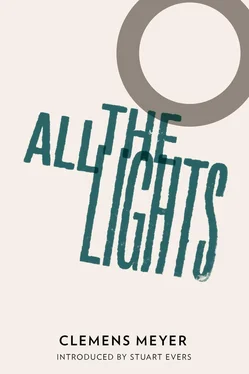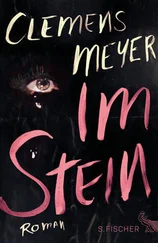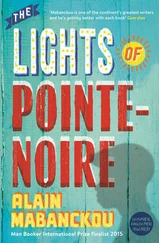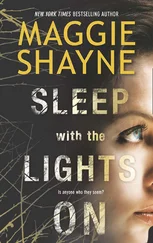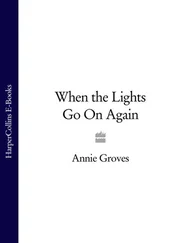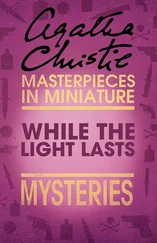Clemens Meyer
All the Lights
The Terrifying Possibility of Now
The short story requires precision and economy; no matter how verbose the prose stylist, all writers are bound by its formal constraints. Even with this in mind, Clemens Meyer’s work remains exceptionally lean, pared down, stripped bare. His stories are taut affairs, built — in the main — on short sentences, adjectiveless nouns and vernacular language. But while All the Lights appears simple, plain even, it swells and burns with complexity, subtlety and a strange kind of beauty. This is writing that basks in the terrifying possibility of now; that neither celebrates nor glamorises its cast of lost, lonely or otherwise impoverished characters, but presents them in situations that feel both authentic and devastatingly real. These are razor-blade slices of life, shorn of an overarching moral or social message.
The ‘now’ that each of the stories deals with is haunted by the past; it crops up in the most awkward places, stalks characters as they try to deal with the life the past has given them. In the opening story, ‘Little Death’, Meyer shows this confusion explicitly, hopscotching through time, allowing the past and the present to coexist in an uneasy, first-person present. Christian — if that is his name, we are never quite sure — is a construct of his own memory, a composite of all the people he has been and the person he has become, and the reader is left to piece his narrative together, from the loss of his silver wrist-watch, to leaving his apartment to sign on, to looking at the same apartment, evicted and drunk, passing a bottle to another victim of circumstance.
This blurring of time is at once confusing and dazzling: dreamlike shifts come together to form a unique depiction of lives unravelling and unspooling. While some stories are more conventional in approach — ‘The Shotgun, the Street Lamp and Mary Monroe’ is a junkie story with a twist; ‘Fatty Loves’ an exploration of misplaced love — Meyer always places considerable demands on his readers. He is not afraid to defy readerly expectation and refuses to take the easy road through his fictions.
In ‘I’m Still Here!’, a boxer is forced to defend himself from neo-Nazis and a pair of fight fans demanding compensation for the pugilist he’s just put in hospital. We expect confrontation, violence, a set piece during which we can root for the gentle giant; instead most of the action takes place off-page, Meyer refusing to show the brawl or the tricks of his character’s trade. The focus remains on the boxer’s interior life, his small dreams of opening his own boxing club, of becoming more than his statistics. Just like life, none of Meyer’s stories follow the trajectory you expect.
The lives Meyer depicts are small ones; ones lived in the margins of society. Their dreams are humble: finding enough money to buy drinks and cigarettes, to see the family one more time, to believe that things are better elsewhere. In ‘Waiting for South America’, perhaps the stand-out story in the collection, Frank receives letters from an old schoolfriend who claims to have made it big. For every description of a glorious Havana sunset or sip of thirty-year old rum, there is the humdrum of Frank’s life to balance it: his money troubles, his ageing and infirm mother. Over the story’s course, Meyer cleverly subverts the relationship between writer and receiver, asking questions that Frank is unwilling to pose, let alone answer. Nothing is certain, except, perhaps, the landscapes around them.
The topography of All the Lights is as constrained as Meyer’s language: tenements, one-room apartments, corridors, bars, railway sidings, small-town shops. Water, whether rivers on which to skim stones or the sea inspiring dreams of escape, proves the only kind of redress to the oppressive urban tableau. And it’s clear that Meyer understands this environment, its people and how its tone shifts from day into night. The sparse utility of his prose illuminates a drab former East Germany, pushing its characters into the light.
For all of Meyer’s evident technical ability, it is his gift for character that sets him apart from writers ploughing similar furrows. The tender friendship between Blondie and the narrator of ‘Riding the Rails’ is based on larceny and deception, and a dwindling kind of communication. They don’t need to finish sentences, don’t need to explain their thoughts and feelings; the bond between them makes speech redundant. It takes remarkable confidence in a pair of characters to show them in such a light — they could so easily feel underwritten — but through this awkwardness the reader comes to understand them both, their dependence and their fears.
In an early interview, Clemens Meyer expressed his ‘suspicion’ of trying to define a generation, of any talk of a ‘we’ — ‘everyone dies alone,’ he added — and any attempt to bracket his writing as emblematic of post-reunification Germany is ultimately futile. What he has harnessed is a style that suits his concerns — part American minimalism, part post-modern European — and that he has fashioned it into his own. His is a voice that demands attention, unafraid to do different, sometimes seemingly wrong-headed, things, confident in its ability to move, confront and engage his readers.
Stuart Evers
June 2011
‘See you around,’ she says, picking up her bag from the bed. I nod and she leaves.
I hear her in the hallway. I haven’t got a light out there and it takes her a while to find the door. I turn to face the wall, but she closes the front door very carefully. The leaving, the goodbye, the hand slipping down a shoulder and an arm into thin air, the lying still. And the dreams. The little death. No, death comes later, when you’re alone and nobody comes any more.
I hear a train crossing the bridge. I turn my head and see the lights of the double-decker carriages through the blind. The train moves slowly; I can still hear it long after the lights have disappeared. I reach behind me for the table, looking for the cigarette I always put there, every time. I stopped smoking a while back now, it’s just this one cigarette every time. I always go up to the guy with no teeth who lives right at the top, beforehand, a scrawny little man who lives with a fat woman.
‘The cigarette,’ he mumbles, grinning. He always calls me ‘Christian’, even though that’s not my name, and I gaze at the last brown stumps left in his mouth. I always stay at the door, and he turns around, walks down the hall to the bedroom. I hear him rummaging around in there, and then the fat woman looks around the bedroom door. She’s wearing some kind of nightshirt, her breasts resting on her stomach. She smiles, and I’m scared she’ll come out. But the guy with no teeth shouts something, and she disappears. The place smells pretty strongly of spirits, and the guy with no teeth stinks like a meths-drinker once he’s standing at the door again, clutching the cigarette in his scrawny hands. I hardly understand him when he talks, and it’s not because almost all his teeth are gone. Sometimes I imagine the fat woman chewing his food for him. I take the cigarette and light it up. I turn onto my back and feel for the pillow, but I can’t find it.
‘You’re so cold,’ she says to me sometimes. I gaze at the ceiling. She’s pulled the pillow over to her and she’s lying a good way away from me with the pillow. I stretch my arm out towards her, but I only touch the pillow. I get up. I walk over to the window and look out through the blind over to the railway embankment. Stairs lead up to the station, lights glowing yellow. Here comes a man, walking down the stairs very slowly, and I turn away. ‘You’re so cold,’ she says, and I feel my face with both hands, but it’s warm.
Читать дальше
